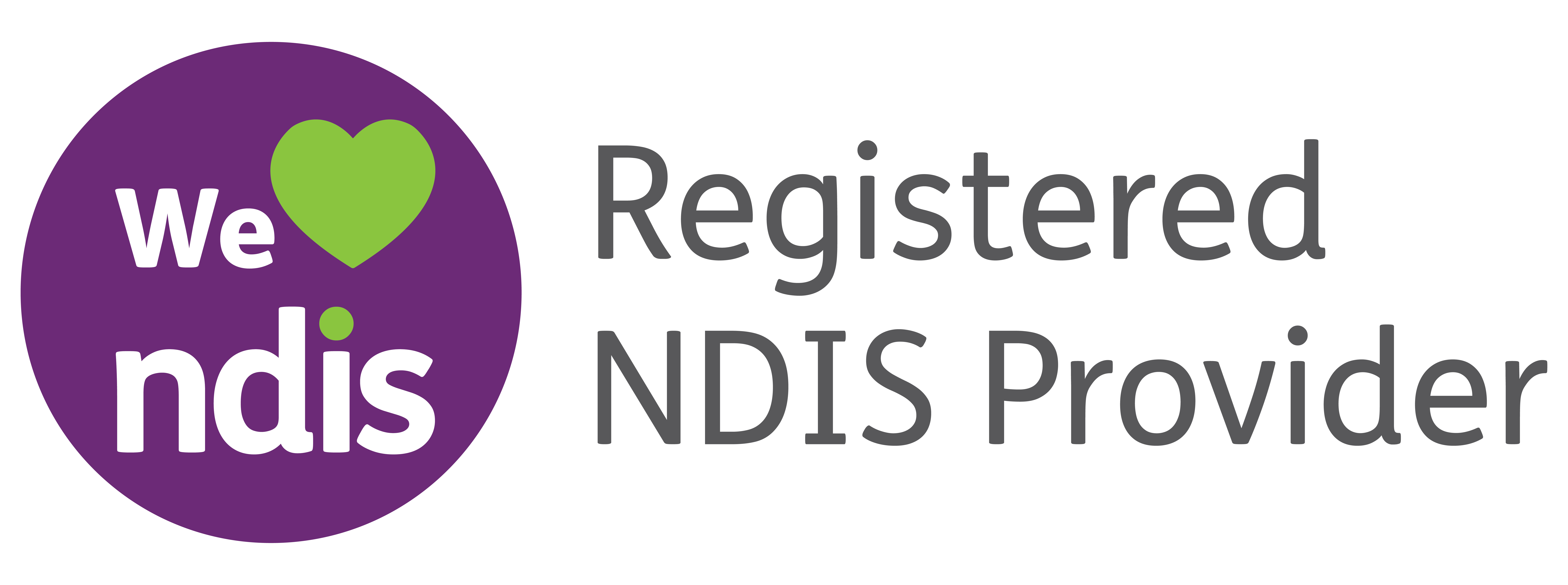
You deserve to get the most out of your NDIS plan—and NDIS support coordination is one of the best ways to make that happen. A good NDIS support coordinator helps turn complex plans into clear, actionable steps, so you’re never left wondering what to do next. Whether you’re working with a disability support coordinator for the first time or thinking of switching, understanding their role can help you take control of your supports, your choices, and your goals.
A Clear Look at NDIS Support Coordination
NDIS support coordination is a service designed to help participants take control of their NDIS journey. With the help of an experienced NDIS support coordinator, you can better understand your plan, connect with the right supports, and feel more confident managing your services. Over time, this support helps you build the skills and independence to navigate the system with less outside help. Whether it’s linking you to community groups, government support coordination services, or specialised providers, a disability support coordinator is there to guide you every step of the way.
The Different Levels of Support Coordination Include
- Basic Support Connection – This is for participants who need light-touch support. A disability support coordinator helps you understand your NDIS plan and make simple connections with providers, while you stay in control of most decisions.
- Standard Support Coordination – Ideal for those needing more regular guidance. Your NDIS support coordinator helps manage day-to-day supports, deal with challenges, and make sure your services are aligned with your goals.
- Specialist Coordination for Complex Needs – This advanced level is for participants with higher or more complex needs. A skilled NDIS support coordinator offers intensive help, working through risks, multiple support coordination services, or difficult situations to ensure you get the right support and outcomes.
What a Support Coordinator Actually Does (And Doesn’t Do)
Understanding the role of an NDIS support coordinator can take a lot of pressure off participants and their families. There’s often confusion about what NDIS support coordination actually includes—and what it doesn’t. A disability support coordinator is there to help you make the most of your plan, but they’re not meant to do everything for you. Instead, their goal is to walk alongside you, helping you build confidence and capacity, so you can navigate your NDIS journey with more independence.
An experienced NDIS support coordinator acts as your go-to person when it comes to finding the right support coordination services, solving problems with providers, and understanding how your plan works in real life. They’re there to make things clearer, smoother, and more tailored to your individual needs. But they’re not a carer, and they don’t provide direct personal support or therapy.
Let’s break down what a disability support coordinator can and can’t do for you.
What Good Support Coordinators Can Do
A reliable NDIS support coordinator will:
- Explain your plan in simple terms, so you know exactly what funding you have and how it can be used.
- Help you find the right support coordination services, whether it’s therapists, support workers, housing options, or community groups.
- Coordinate multiple providers to ensure your supports work together smoothly and don’t overlap or clash.
- Support you during plan reviews by helping you gather reports, reflect on goals, and prepare for meetings.
- Assist in crisis situations or service disruptions by helping you find quick solutions and suitable replacements.
- Build your confidence, so over time, you can manage more on your own without always needing assistance.
- Act as a communication bridge, making sure everyone in your support network is on the same page.
A good disability support coordinator isn’t just task-focused—they’re people-focused. They take the time to get to know you, your goals, and what matters most to you.
What Support Coordinators Can’t Do (Common Misconceptions)
While NDIS support coordination is incredibly valuable, it’s important to understand what’s not part of the role. Many families expect their NDIS support coordinator to manage every aspect of care, but that’s not how the NDIS is designed. Here’s what a disability support coordinator doesn’t do:
- They don’t provide hands-on support, such as personal care, cooking, transport, or cleaning.
- They don’t deliver therapy services—those come from your allied health professionals.
- They can’t make decisions on your behalf—your choices are always respected and prioritised.
- They don’t manage your money—plan managers or self-management options handle budgets and invoices.
- They’re not emergency responders or on-call at all hours—boundaries are important for sustainable support.
- They don’t provide counselling or mental health therapy, but they can connect you with professionals who do.
Knowing what NDIS support coordination involves—and what it doesn’t—can help set clear, healthy expectations. That way, you can make the most of this support without confusion or frustration.
How to Choose the Right NDIS Support Coordinator for You

Choosing the right NDIS support coordinator can make a huge difference in your NDIS journey. The right person doesn’t just understand the system—they understand you. They know how to listen, advocate, and help you turn your NDIS plan into real, meaningful outcomes. Since NDIS support coordination is such a personal and ongoing part of your life, it’s important to find someone who’s the right fit for your needs, values, and communication style.
Not every disability support coordinator works the same way. Some may have more experience with specific disabilities or age groups, while others might specialise in particular regions or cultural communities. What matters most is that you feel supported, heard, and respected. Here’s what to keep in mind when choosing the right NDIS support coordinator for your situation.
Questions to Ask Before You Commit
Before you start working with a disability support coordinator, take some time to ask the right questions:
- Have you worked with someone with similar needs to mine?
- Do you understand the supports available in my area?
- How do you usually communicate with participants—calls, emails, in-person?
- What does your availability look like?
- How do you support people through plan reviews or when challenges come up?
These questions can give you insight into whether this person’s approach to NDIS support coordination aligns with what you’re looking for.
Matching Culture, Language & Location – NDIS participants come from all walks of life—and your NDIS support coordinator should reflect or at least understand your background. For many people, having a disability support coordinator who speaks their language or understands their cultural values can make communication easier and more comfortable.
Also, don’t underestimate the importance of local knowledge. A coordinator who understands the service landscape in your area can connect you more efficiently with trusted providers and community resources.
Red Flags to Watch Out For – Not every experience with NDIS support coordination will be smooth, and unfortunately, not every coordinator is a good fit. Keep an eye out for signs that something’s not quite right, such as:
- Lack of communication or responsiveness
- Making decisions without your input
- Pushing certain providers or services without explanation
- Not explaining your plan or your choices clearly
- Being unavailable when issues arise
If you’re feeling unheard or unsupported, it might be time to look for a new NDIS support coordinator who truly understands your needs and goals.
Choosing the right disability support coordinator is a personal decision—and one that can have a big impact on your life. Take your time, ask questions, and trust your instincts. The right person will help you feel confident, capable, and supported every step of the way.
How Support Coordination Helps You Achieve Your NDIS Goals
At its core, NDIS support coordination isn’t just about organising services—it’s about helping you live the life you choose. A skilled NDIS support coordinator doesn’t tell you what to do. Instead, they work with you to understand what matters most and how your plan can support those goals. Whether you want to live more independently, build skills, join your community, or simply get better support, a disability support coordinator helps connect the dots.
This kind of support is especially helpful when things get overwhelming or complicated. Life changes, plans shift, and sometimes providers don’t work out—and that’s okay. With the right NDIS support coordinator by your side, you’ll have someone who can adapt, guide, and keep your journey moving forward. Here’s how NDIS support coordination can directly help you meet your goals:
Building Your Capacity and Independence
One of the main aims of NDIS support coordination is to help you become more confident in managing your own supports. Over time, a good disability support coordinator helps you:
- Understand your rights and choices
- Learn how to communicate with providers and support workers
- Build problem-solving skills when issues arise
- Gain more independence in decision-making
Rather than doing everything for you, your NDIS support coordinator works with you to build your capacity so you can take control of your supports and life goals.
Connecting You With the Right Support Coordination Services
A major part of NDIS support coordination is finding and connecting you with the right providers—ones that align with your goals, values, and lifestyle. Your NDIS support coordinator will take the time to learn about your needs and recommend services that fit, such as:
- Allied health professionals (e.g. physios, OTs, psychologists)
- In-home care providers
- Community programs
- Housing supports or supported accommodation options
- Employment or life skills training
This kind of tailored approach ensures your supports don’t just tick boxes—they actually work for you.
Making the Most of Your NDIS Plan Reviews
Your NDIS plan is meant to evolve with you, and regular reviews are your opportunity to reflect and reset. A disability support coordinator plays a key role in this process by:
- Helping you track what’s worked well—and what hasn’t
- Gathering reports or progress notes from your providers
- Preparing you for plan review meetings
- Advocating for changes in funding or supports if your needs have changed
- With good NDIS support coordination, your plan review becomes a proactive step, not a stressful task.
Support coordination isn’t just about managing the day-to-day—it’s about creating a foundation that helps you move forward with confidence. A great NDIS support coordinator ensures your plan is more than paperwork. It becomes a pathway toward greater independence, connection, and purpose.
Common Challenges You Might Face with NDIS Support Coordination (and How to Handle Them)
While NDIS support coordination is a powerful tool for navigating the NDIS, it’s not without its bumps along the way. Participants and families often run into common challenges that can cause frustration or confusion—but the good news is, many of these issues can be managed or even prevented with the right support. A great NDIS support coordinator won’t just guide you through the good times; they’ll also help you tackle the hard stuff with confidence and clarity.
Here are some of the most common challenges participants face when working with disability support coordinators, and what you can do to overcome them.
Service Gaps and Provider Shortages
Depending on where you live, finding the right support coordination services can be tough—especially for specialised supports like allied health, housing, or culturally appropriate care. Some areas, particularly regional or remote locations, may have limited NDIS providers.
A proactive NDIS support coordinator can help you explore a wider range of options, including online services, mobile providers, or even building capacity within your local community. They can also advocate on your behalf to ensure you’re not missing out due to geographic location.
Communication Barriers
Miscommunication can happen—whether it’s between you and your coordinator, or your coordinator and service providers. This can lead to misunderstandings, missed appointments, or supports that don’t meet your needs.
A skilled disability support coordinator will take the time to get to know your preferred communication style, language needs, and any accessibility requirements. They’ll act as a bridge between you and your providers, making sure your voice is heard clearly and consistently.
When Things Go Wrong: Changing Coordinators or Making a Complaint
Sometimes, despite best efforts, the relationship with an NDIS support coordinator just doesn’t work out. Maybe they’re unresponsive, not listening, or not following through—and that’s not okay.
You have every right to change your disability support coordinator if things aren’t working. You can speak to your plan manager, Local Area Coordinator (LAC), or even request a change through the NDIS. You can also make a complaint to the NDIS Quality and Safeguards Commission if necessary.
NDIS support coordination should feel empowering, not stressful. If it’s not working, it’s okay to speak up.
Feeling Overwhelmed or Lost
Many participants feel like they’re expected to “figure it all out” on their own, even with a plan in place. That’s where the right NDIS support coordinator makes all the difference—someone who doesn’t just explain things, but walks with you through each step.
Remember that challenges are normal. What matters most is having the right people in your corner—especially a compassionate and capable NDIS support coordinator who knows how to navigate those bumps with you, not just for you.
What’s Next? The Future of Support Coordination in the NDIS
The world of NDIS support coordination is changing—and for many participants and families, these changes are bringing new opportunities, more flexibility, and better ways to stay in control. As the NDIS continues to evolve, the role of an NDIS support coordinator is becoming even more focused on choice, empowerment, and inclusion. If you’ve felt overwhelmed by systems in the past, the future could feel a lot easier to navigate.
From new technology to updated policies, the way disability support coordinators work is being shaped by innovation and feedback from the people who use these services every day. And that’s exactly how it should be—because support coordination isn’t about ticking boxes; it’s about helping real people build lives that feel meaningful and independent. Here’s a look at where NDIS support coordination is headed and how these changes could affect you.
Technology and Tools Making Support Easier
One of the most exciting developments in NDIS support coordination is the rise of digital tools that make communication and planning easier. More NDIS support coordinators are now using apps, shared calendars, and secure online portals to help participants:
- Keep track of appointments and funding
- Access real-time updates on plan usage
- Communicate directly with their support coordinator or team
- Store important documents in one safe place
These tools are especially helpful for participants who want more control over their day-to-day supports, or who live in remote areas where in-person meetings aren’t always possible. A tech-savvy disability support coordinator can offer a smoother, more flexible experience—without losing the human connection.
Policy Changes and What They Mean for You
With ongoing reviews of the NDIS and more focus on participant outcomes, there are important policy shifts on the horizon. These may affect how NDIS support coordination is funded, who is eligible for certain levels of support, and how NDIS support coordinators are expected to report and work with participants. Some of the expected changes could include:
- Clearer guidelines on what a disability support coordinator can and can’t do
- Stronger accountability measures to ensure participants receive high-quality support
- More personalised approaches that allow for greater flexibility in how support coordination is delivered
For participants and families, this means it’s more important than ever to stay informed, ask questions, and make sure your NDIS support coordinator is up to date with the latest changes.
Looking Ahead with Confidence
While change can feel uncertain, it’s also an opportunity to do things better. The future of NDIS support coordination is moving toward more transparency, smarter tools, and a stronger focus on what participants actually want. A good NDIS support coordinator will walk with you through these changes—not just keeping up, but making sure you’re ahead of the curve.
The goal has always been to help you live a life that feels like yours. With the right disability support coordinator and the right tools, that future is more possible than ever.
How SafeLane Healthcare Can Help You Navigate Support Coordination with Confidence
At SafeLane Healthcare, we understand that NDIS support coordination is more than just a service—it’s a relationship built on trust, understanding, and real support. Whether you’re just starting out with your first plan or looking for a fresh start with a new NDIS support coordinator, our team is here to walk alongside you every step of the way.
We know that every participant’s journey is unique. That’s why we take the time to match you with a disability support coordinator who truly understands your goals, challenges, and preferences. Our coordinators listen first, then guide—ensuring your plan is not only understood, but fully used to your advantage.
With SafeLane, you can expect:
- Personalised support coordination tailored to your individual needs
- Clear, open communication—we’re always here to answer your questions
- Local knowledge and experience, helping you access the best services in your area
- Ongoing plan support, so you’re never left to figure things out alone
- A strong focus on independence, so you feel empowered, not dependent
Our team believes that great NDIS support coordination is about more than connecting you to services—it’s about helping you build the life you want, on your own terms. We’ll be here to support you through changes, challenges, reviews, and everything in between.
Ready to Get Started?
If you’re looking for an NDIS support coordinator who genuinely cares and takes the time to understand your journey, we’d love to talk. Whether you’re exploring NDIS support coordination for the first time or you’re ready to switch to a disability support coordinator who fits better with your goals, SafeLane Healthcare is here for you. Let’s work together to make your NDIS plan something that truly supports your life—not just something that sits on paper.
Contact us today to chat about your goals and how we can support you moving forward.
Subscribe Our Newsletter
Join our newsletter for community updates and resources.



